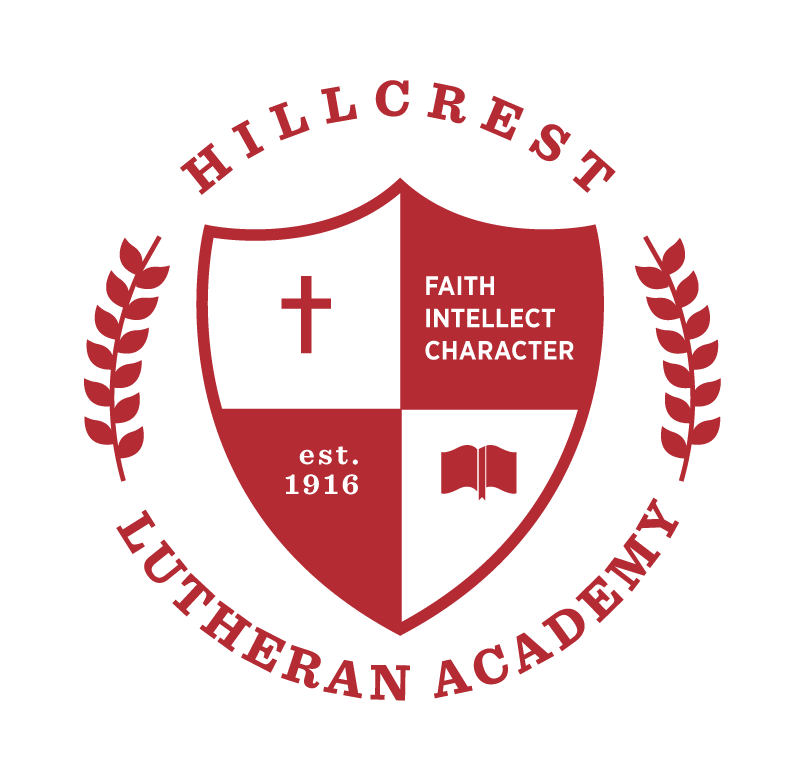Classical Education Explained by Teachers
Grammar | Logic | Rhetoric
Classical Christian Education
Hillcrest is a community of parents and teachers who share a commitment for teaching children to love learning and grow in godliness. Our approach to Classical Christian education uses students’ God-given strengths at each stage of growth to guide learning. Traditionally, the classical model is expressed in three stages of learning called the trivium. These three stages are grammar, logic and rhetoric.
Young children, generally those in K-6th grade, are uniquely adapted to memorize, like sponges soaking up information. This is called the grammar phase. They learn chants, songs and rhythmic verses quickly and well. When making the most of this innate ability, students accumulate a vast storehouse of information from which to draw throughout their lives.
During the logic phase, roughly 6th-9th grade, students start to form connections between all the pieces of information they have gathered thus far. They desire to understand the “how” and “why” of things. Basing truth in Scripture, they construct correlations, integrate subject matter and engage in conversations.
The rhetoric phase, typically high school-age, is a time where students move from learner to leader. After gathering information and processing it, students are equipped to explain what they know in an eloquent and persuasive manner. Many classes include speaking opportunities and further training in how to think.
In our integrated learning environments, students often feel that history classes resemble Bible courses and Bible courses feel like English classes. Graduates from Hillcrest have mastery in reading, writing, science and rhetoric, and students who attend Hillcrest for more than four years are comfortable in Latin and logic. Because of the nature of Hillcrest’s program, the fine arts are available and essential to the Hillcrest experience. We find the Lord uses our program to shape students into followers of Christ. Classical Christian education is an investment into your children’s life that will reap a lifetime benefit.
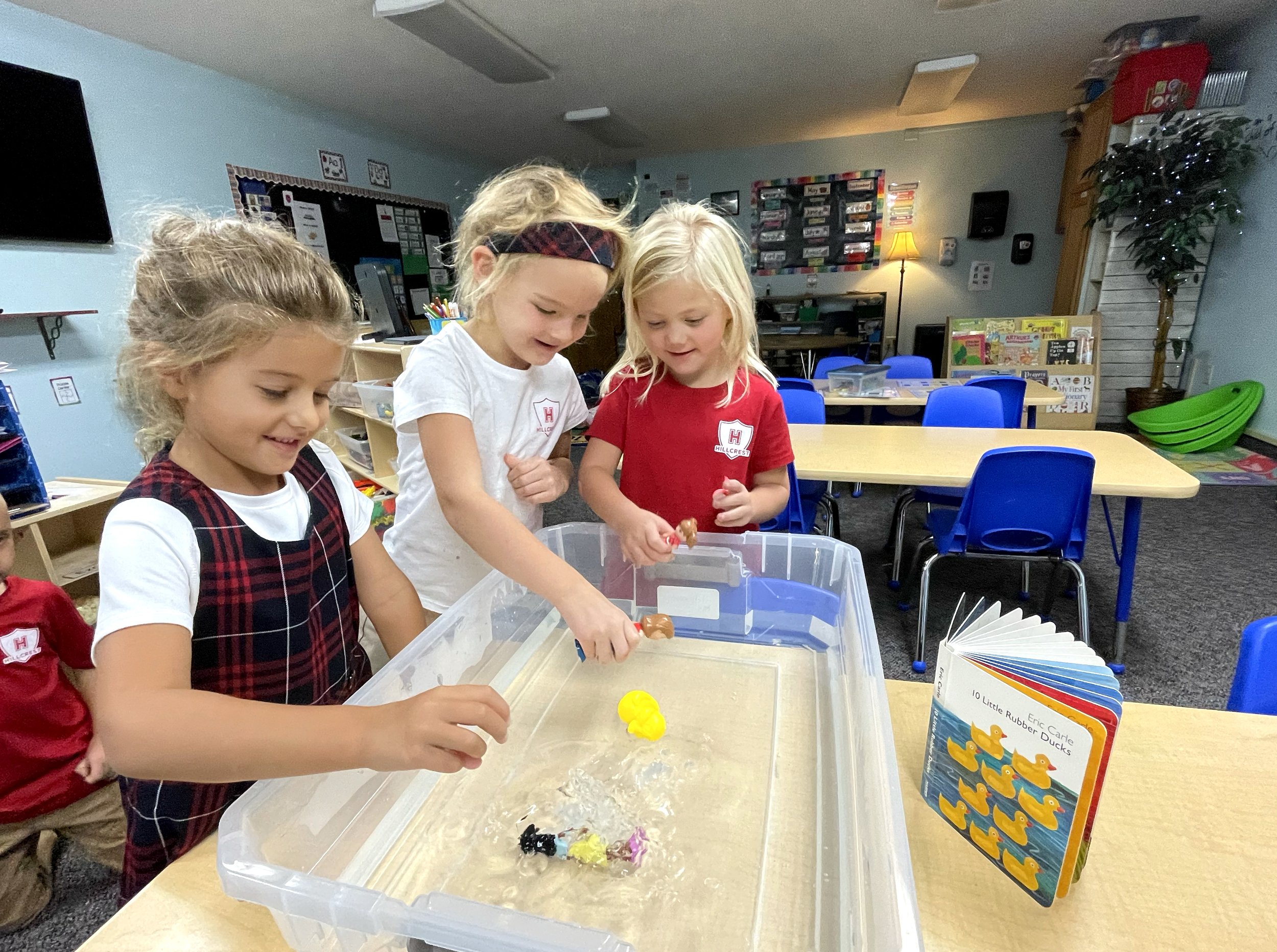
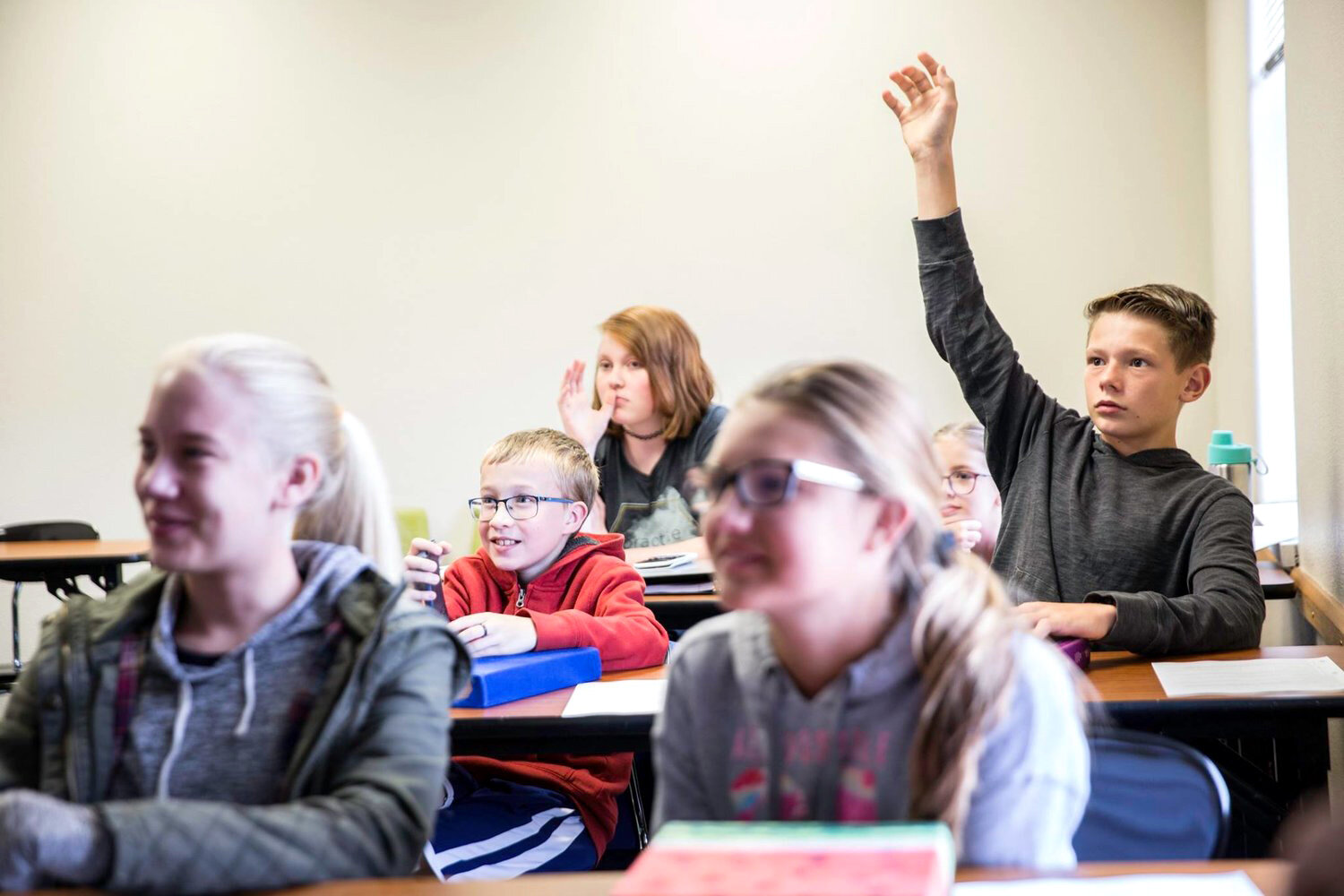

Three Roads of Classical Training: The Trivium
Grammar
Traditionally, the classical model is expressed in three stages of learning called the trivium. Grammar, the first stage, is studied in grades K-6th. Students accumulate knowledge through memorization. The grammar stage provides an important foundation for lifelong learning.
Logic
The logic stage is often referred to as the dialectic stage. Hillcrest’s Junior High highlights the logic stage in explaining the foundation of academic disciplines. Students study logic as a class, in addition to Latin, building an understanding of root thoughts and languages as they pursue further academic study. Students in junior high are naturally interested in debating and questioning everything from political boundaries, to elections, to parental rules. While some might see this as a desire to challenge authority, the exercise in debate is really a craving to systematize their thoughts and engage in the adult world of dialogue.
Rhetoric
Hillcrest holds a unique approach to Classical Christian training. Hillcrest’s program utilizes a consistent draw from the grammar and logic stages to bolster the rhetoric stage. With most international and resident students transitioning into Hillcrest with little or no classical training, Hillcrest’s instructors take special care to develop skills in both grammar and logic to enable students to speak and write both eloquently and persuasively.
With students engaging in classroom dialogue and thought, employing logic to reason through ideas, they are trained to communicate with each other in a respectful manner. Students base their ideas on foundations in logic, learning that logic comes from the mind and character of the Creator.
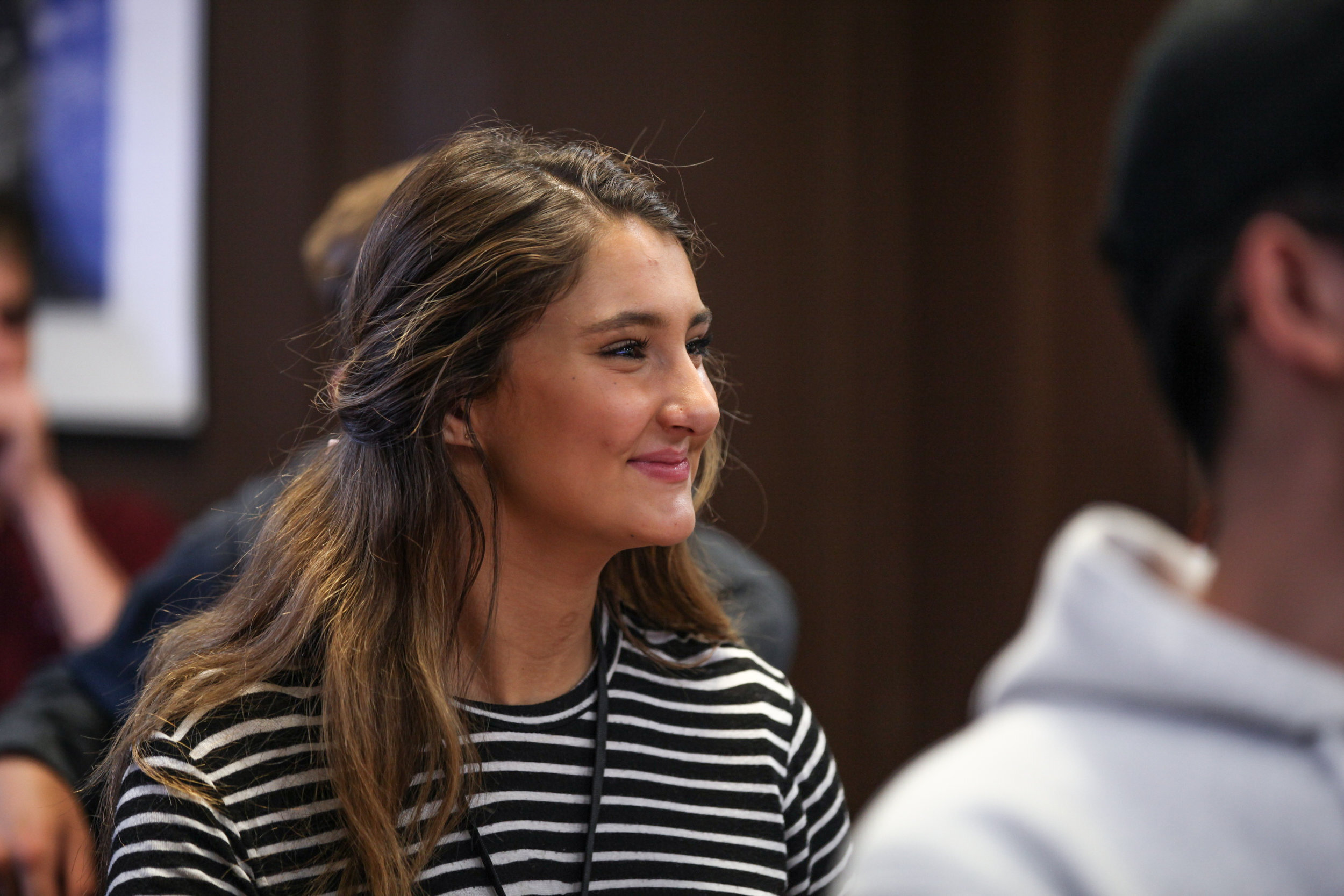
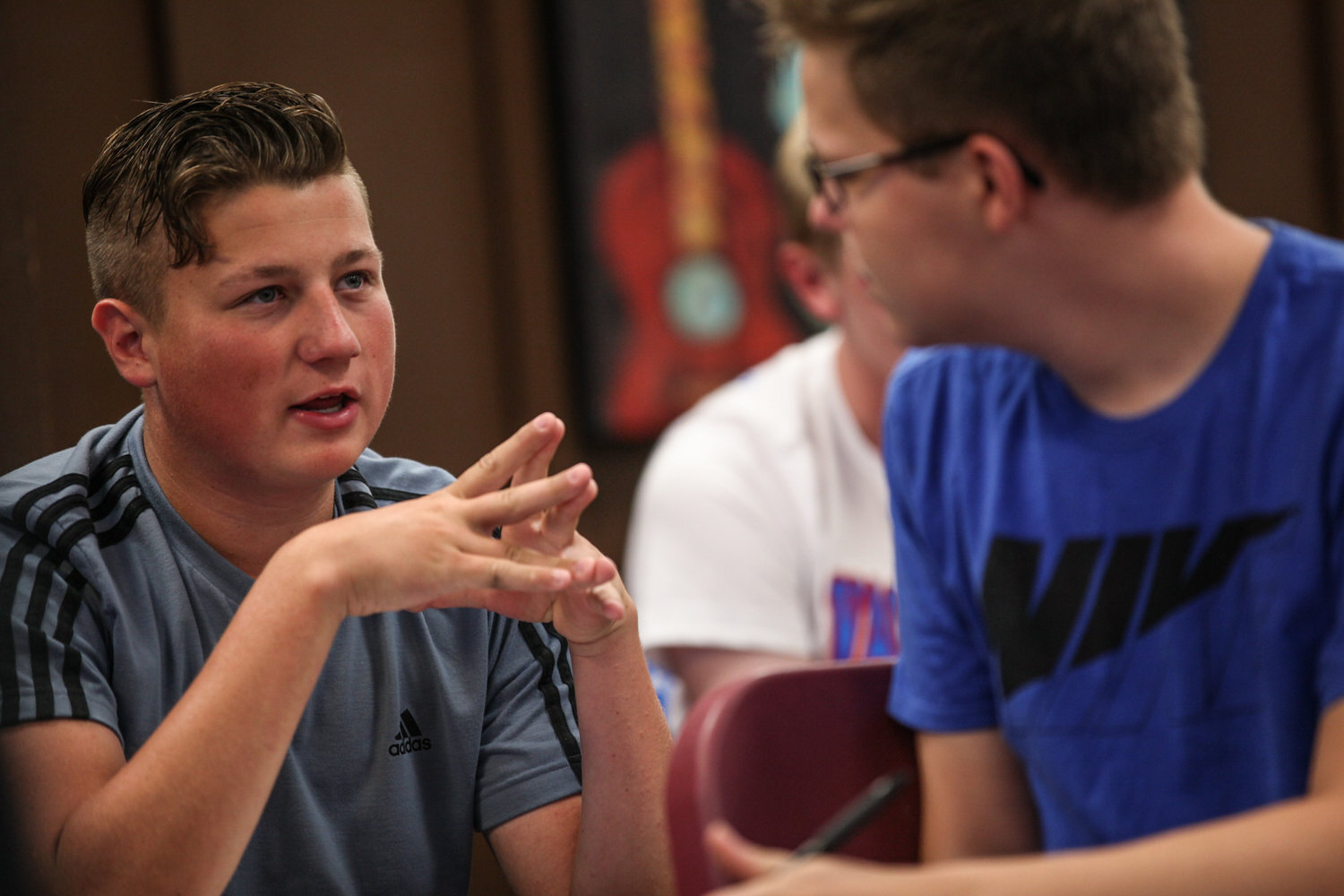

A Look at Classical Ed. in Action
“What differentiates courage from foolhardiness?” The question is deep, but highlights new approaches to character formation that are part of Hillcrest’s Classical Education program.
The students shuffled in their chairs, some staring out the window where snow piled on the roof. The question was difficult to answer. Heads snapped back to attention as Mrs. Foss continued. “I want to compare King Richard the Lionheart with Cuthbert on a couple of things.” Eyebrows raised.
G.A. Henty’s Winning His Spurs came to life in front of the students as Mrs. Foss animated the storyline. The differences between courage and foolhardiness seemed obvious from their reading, but silence still hung in the air as they pondered the question. After a few minutes of encouragement the students started recounting the details.
“Both men are showing bravery.” The students started nodding as Mrs. Foss traversed her lesson plan. Students spoke to details in the storyline, recounting the brash wedding of Richard the Lionhearted compared to Cuthbert’s calculated actions in seeking counsel. Students heard powerful life lessons as Mrs. Foss transitioned from detailed retellings of the story to abstract concepts for life. “Sometimes, if you’re not careful, your actions can end up as a foolhardy move.”
Mrs. Foss’s class is dynamic. Students not only sift through character formation, but piece together knowledge from other classes to decipher meaning in the texts they’re exploring in Hillcrest’s classical approach to educating students.
The class period tarried on lessons from side stories in their reading. Tangible examples of how theology and philosophy drive history transitioned to deeper conversations. Character and virtue were dissected. Students leaned forward to consider defining courage with greater foundation. Bold actions supported by convictions may be brave, but students started to see how those same actions could be foolhardy. The virtue of courage formed legs from temperance and justice.
“In closing I want you to open your Bibles to Proverbs 10.” Students pushed aside the red covered book for red lettered pages. “Thinking about courage, I want you to read this.” The passaged spoke to foolishness. Students compared that to the concept of courage they were forming in their reading lesson.
They flipped to Proverbs 28:26, continuing their deep dive in character formation. “How do you get wisdom?” Students’ hands popped up. Their bold proclamations included patience, as well as learning from the mistakes and successes of others. Mrs. Foss pushed the students to think deeper.
One student, quiet for much of the class, mentioned elders. Mrs. Foss agreed, calling out the wisdom of grandparents, before asking, “What about Scripture, and when you read something and you feel like you know something is right, how would you know it’s right?” Students said talking to people about the Bible in church, with their family, with pastors and youth pastors.
“You guys! You get to be leaders in this culture that is telling you to follow your heart. King Richard is all about the heart. We’re now going to watch Cuthbert and Margaret in the coming chapters. Now, flip to Matthew 25, and the parable of the talents. What verse is that?” A student shouts “fourteen!” with excitement. Mrs. Foss continued “I want you to read that parable tonight and I want you to think of Cuthbert and King Richard, and I want you to think about you. Where do you fit in all this? So you’ll read that, and Beowulf for tomorrow.”
“Those who trust in themselves are fools, but those who walk in wisdom are kept safe.”


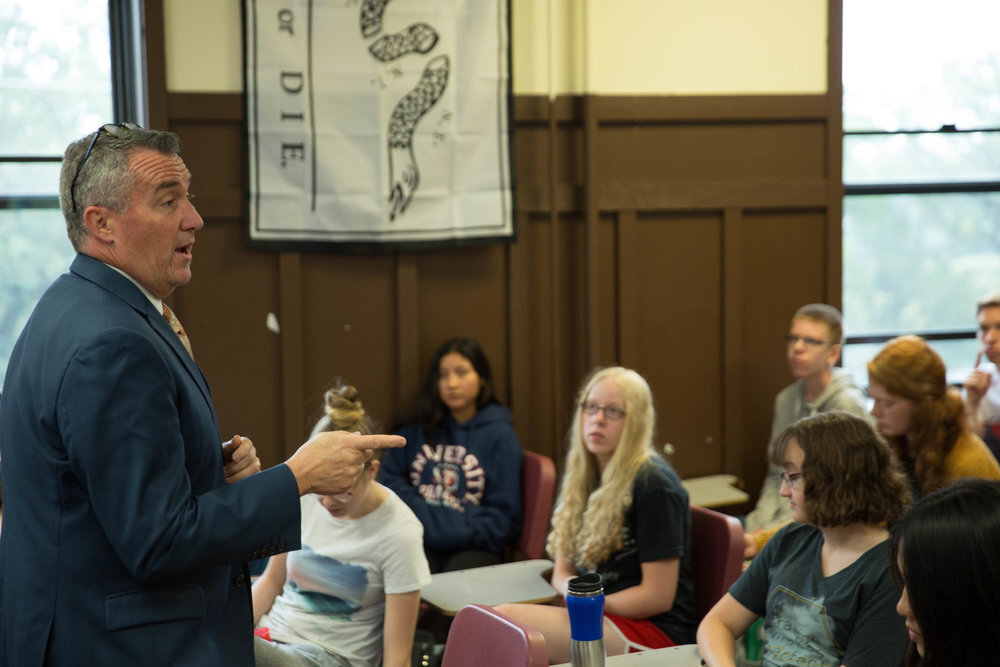
Are My Kids Too Old to Start at a Classical School?
While the classical approach builds on concepts in grammar, logic, and foundational rhythms, the benefits are not lost on those who haven’t experienced the classical model in earlier grades. At Hillcrest, the classical approach is facilitated by expert instructors who use mentorship practices to onboard students to understand foundational knowledge and hone practical skills in logic to form and articulate strong arguments, a hallmark of the classical program seen in high school students.
Fundamental principles of classical education include mastering subjects deeply rather than superficially, the importance of repetition for memory, fostering wonder and curiosity, and the development of educational virtues like humility and diligence. This holistic approach aims not only at intellectual growth but also at cultivating moral character and virtues. Through Hillcrest’s approach, students new to a classical environment build muscles quickly through repetition through the discipleship approach and quickly find footing inside the classical program.
We believe it is never too late to begin a classical education at Hillcrest. This form of education is seen as a lifelong journey that can be started at any point, including during high school. Because of the dormitory program and purposeful student life activities, the approach to classical learning is gradual and intentional. Mentorship at Hillcrest is unique, allowing for deep immersion and understanding with invested adults walking through life with students step by step, emphasizing patience and steady progress over fast results and expediency.
Joining Hillcrest Academy’s classical approach to learning with a mentorship emphasis include:
A Lifelong Journey: Classical education is a continuous learning and intellectual growth process. It is not confined by age; starting later can be as enriching as starting early. It mirrors traditional concepts in faith formation, and students at Hillcrest find the classical model supported in the spiritual disciplines they develop in the mentorship and discipleship program.
Well-Rounded Development: By exploring a wide range of subjects, classical education helps develop a comprehensive understanding of the world. Reading classics in literature, philosophy, and history fosters a well-rounded perspective. This approach to learning gains traction in Hillcrest’s discipleship program, where students find accountability in the dormitory and student life programs where character and faith formation are consistently shaped in and out of the classroom.
Critical Thinking Skills: Classical education hones the ability to think critically, an essential skill in navigating the information-rich modern world. This powerful tool equips teens with the ability to understand the logic and principles that drive the world naturally. In shaping these skills in the high school program, students build rhythms to critically understand the truth and how to apply skills in thinking to their lives.
Better Citizenship: It instills a deep appreciation of heritage and values, contributing to developing informed and engaged citizens. Living in a dormitory and inside an active student life program, students at Hillcrest build habits for living with others that serve them to provide leadership and an example for future communities they will participate in.
In essence, student life at Hillcrest utilizing the classical approach to learning, even when started in high school, offers a transformative experience that goes beyond academic learning. It prepares individuals for academic success and thoughtful, engaged, and virtuous living.

